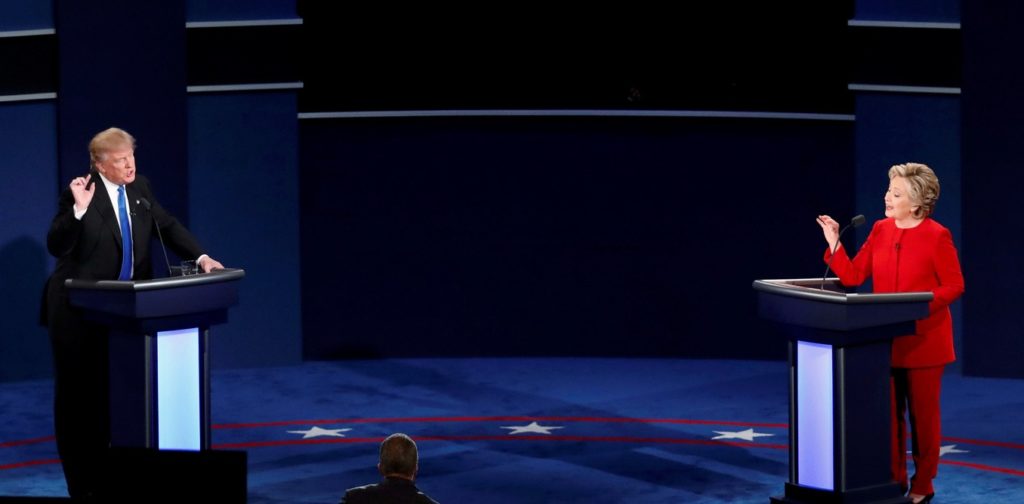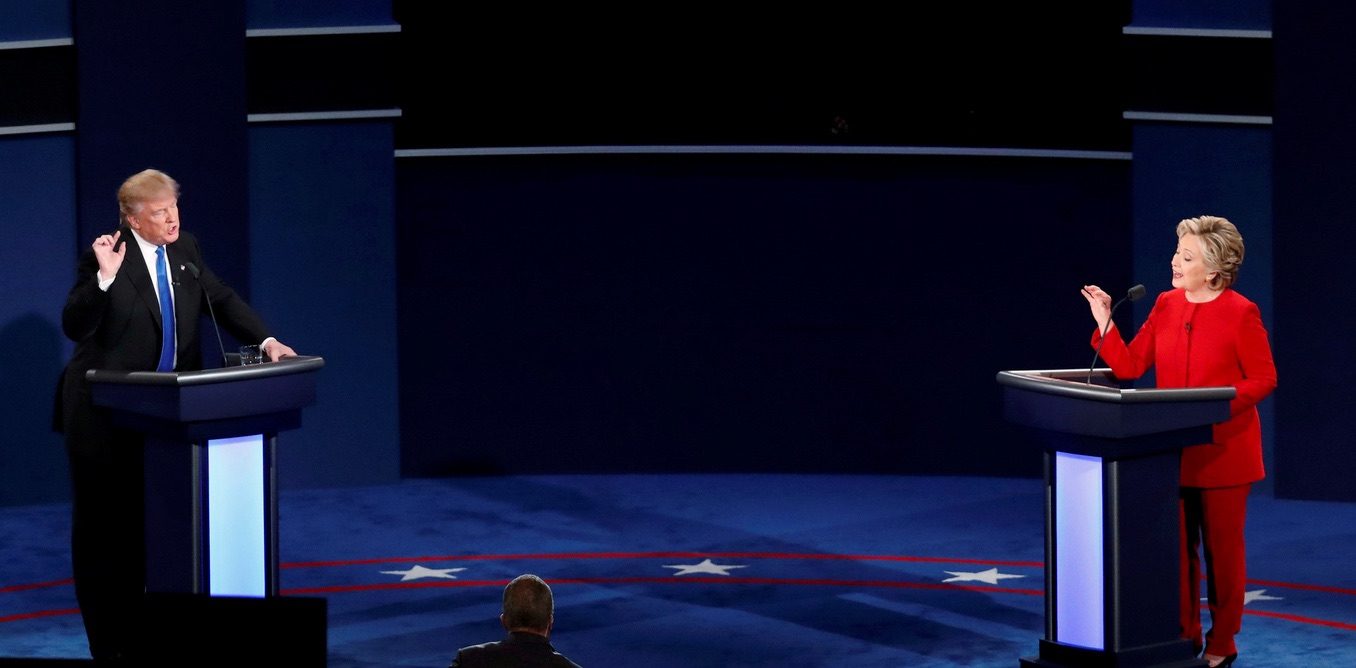
Four presidential debates: zero questions about climate change.
This is the kind of world we live in: a world that ignores problems that lack the immediate impact to make a dent in our feeble attention spans.
Like a student putting off homework until the night before, only to realize that the scope of that research paper can’t possibly be tackled in a single night—America has forgotten to tackle our planet’s most pressing issue.
But is it really fair to use the word “world” when the finger-pointing should be in our own backyard? The rest of the world has at least acknowledged the problem.
Not too long ago things seemed promising. In April the Paris Agreement was signed: Earth Day, April 22. The agreement’s aims were primarily concerned with mitigating greenhouse gas emissions, which would essentially curb the amount of carbon dioxide, methane and other deadly greenhouse gases that are released into the atmosphere. It also dealt with climate change adaptation measures as well as finances.
The agreement aspires to hold the long-term temperature rise to well below 2 degrees Celsius, with hopes of aiming at the 1.5 degree Celsius mark. If successful, this would not reverse or even stop climate change, but would reduce the increasing effects of global warming.
It was a start. The U.S. was finally on board, as was the rest of the world. We were poised to make a change.
Then this pesky presidential election business came about. Somewhere along the way, we forgot about what happened in April. Or perhaps we thought it was over.
We were the child who mistook finishing one piece of homework for being done with the semester, not recognizing that there is still a lot of work to be done.
The Paris Agreement was intended to be just the beginning. Now it might just end there.
There were questions about jobs and the economy. Questions about abortion, immigration, healthcare and the national debt were fielded countless times. These are all important issues. But where were the questions about climate change, exactly? Hell, WikiLeaks and emails were mentioned more times than what some have labeled the most important issue humanity has ever faced.
If that’s even remotely true, then it is also true that it is the most forgotten issue of the 2016 presidential election.
The closest we got to a question about climate change in the presidential debates came in the form of the much-parodied Ken Bone, who asked, “What steps will your energy policy take to meet our energy needs while remaining environmentally friendly and minimizing job loss for fossil power plant workers?”
Not really a climate question, but that’s as close as we were going to get. Hey, at least it sort of touched on an important surrounding topic, even if it didn’t get to the meat of things.
So why do we keep ignoring it? Because if you aren’t living in Miami, which is plagued by rising sea levels, or the small Pacific island nation of Kiribati, which is already underwater, then it remains a hypothetical to you. Just an exercise in long-term thinking.
We live in instant gratification culture. We want now, we think about what is going to affect us today, not a few years from now.
If the story ended here, the 2016 presidential election would have failed climate change. But it didn’t end there.
Hold onto your britches, because things just got a lot scarier.
In a miraculous (but mostly dreadful) turn of events, Donald J. Trump was elected the 45th president of the United States. As it stands, the 2016 presidential election has massively failed the climate change movement.
This is, after all, a man who called climate change a hoax created by the Chinese.
Mr. Trump has also promised to disassemble the Environmental Protection Agency (EPA). Don’t believe him? Whatever hoops he might have to jump through to get that done, at the very least he seems poised to destroy it from the inside-out. He made this evident when he appointed Myron Ebell to lead the EPA transition team, a man whose sole life work has been climate change denial. This is a man who has even gone as far as to suggest that greenhouse gases are beneficial.
They want to get rid of the Clean Power Act.
They want to bring back the coal industry and stifle the growth of alternative energy sources.
They want to squash the Paris Agreement. As president, Trump can choose not to follow the guidelines.
This is terrifying.
We live in the anthropocene now: “the age of man.” Scientists estimate that the current extinction rate is somewhere between 100 to 1000 times higher than normal. Elizabeth Kolbert, a Pulitzer prize winning author for her work, The Sixth Mass Extinction: An Unnatural History, has highlighted this significant issue.
The only thing stopping him is us. We the people. Our voices must be heard.
With enough pressure, other countries may decide to enforce a carbon tax should Mr. Trump choose not to engage in the deal. We can hold him accountable.
But we can’t keep putting it off for tomorrow. We have to start today, because tomorrow might be too late this time.



